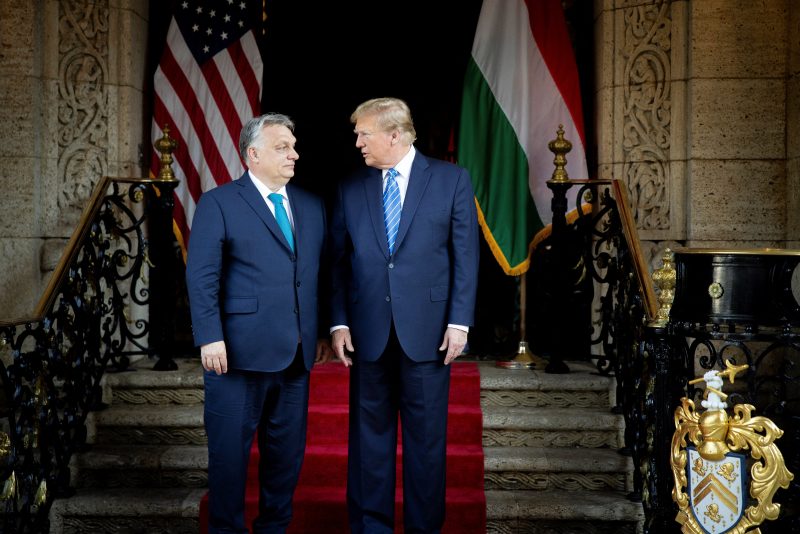In the latest turn of events on the global political stage, United States former President Donald Trump recently met with Hungarian Prime Minister Viktor Orban, sparking widespread discussions and concerns among critics and analysts alike. The meeting between Trump, a figure known for his divisive and controversial actions during his presidency, and Orban, who has been labeled as an autocratic leader by many, raised eyebrows and prompted speculations about the implications of their alliance.
One of the key focal points of the meeting was the shared views of Trump and Orban on issues such as immigration and national sovereignty. Both leaders have been vocal critics of what they perceive as threats to their respective countries from immigration and what they see as a challenge to their nations’ sovereignty. Their common stance on these issues has led to assumptions that the meeting was a strategic move aimed at forming a closer bond between the two leaders and their administrations.
Critics of the meeting have expressed concerns about the potential consequences of a closer relationship between Trump and Orban, pointing to the implications for democratic values and human rights in Hungary and beyond. Orban’s government has faced criticism in recent years for its crackdown on media freedom, judicial independence, and civil society, raising alarms among those who fear the erosion of democratic norms in the country.
The timing of the meeting between Trump and Orban has also been scrutinized, coming as it did in the midst of heightened tensions between Russia and Ukraine, a situation that has drawn global attention and raised fears of a potential military conflict. Some analysts view the meeting as a signal of support for Orban from a prominent figure like Trump, potentially emboldening the Hungarian Prime Minister in his policies and actions.
Moreover, the meeting has reignited debates about the role of former politicians on the global stage and their influence on current affairs. Trump’s continued engagement in international politics since leaving office has drawn both praise and condemnation, with some viewing his involvement as a positive force for change while others see it as a source of disruption and division.
As the fallout from the Trump-Orban meeting continues to unfold, it remains to be seen what lasting impact it will have on the political landscape both in Hungary and on the global stage. The alignment of two controversial figures with shared views on key issues raises questions about the future trajectory of international relations and the extent to which democratic values and human rights will be upheld in an increasingly polarized world.
